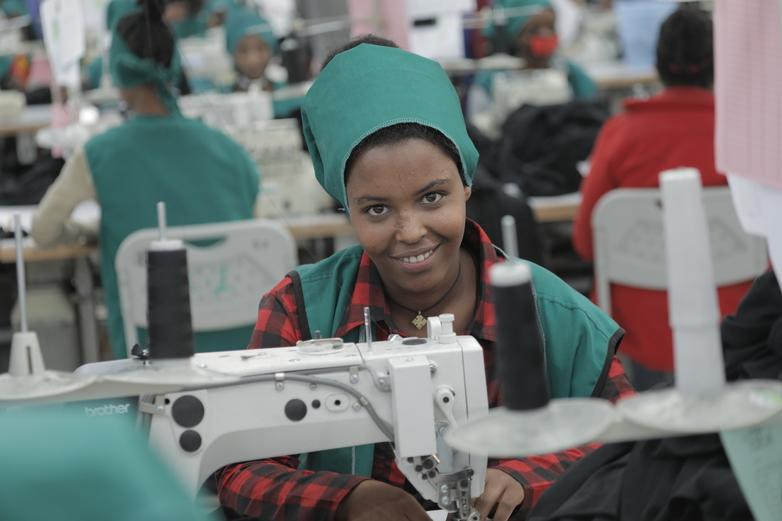Context
Ethiopia’s textile industry is set to gain a steady foothold in the international textiles and garment export market. The country now has a unique chance to enable sustainable development and inclusive growth of the sector. The industry aims to export USD1 billion worth of garments every year by 2020 and has the potential to create jobs for more than 350,000 people. In the past five to six years, 65 international textile investment projects have registered in the country. Growth is directly linked to the government’s industrial development strategy.
However, efficiency in factories can often be slow, affecting the production volume between 40 – 45 per cent. Processes need developing and the workforce requires more education. Cycle times can be up to 150 days due to the lack of raw materials. Only 40 per cent of the materials needed are available in Ethiopia, while the remaining 60 per cent are imported. Compared to other countries, manufacturing and production can take 45 to 60 days longer. Challenges also include restriction in technology, specifically in digital processing for transactions. Simultaneously, international buyers have raised social and environmental standards in the past years, due to greater customer demand for fairly produced garments. Growth in the sector and its establishment in Ethiopia need to be sustainable, adhering to international standards and regulations.
Objective
The programme provides institutional support to Ethiopian textile companies from the beginning of their industrial growth to improve social and environmental standards.
